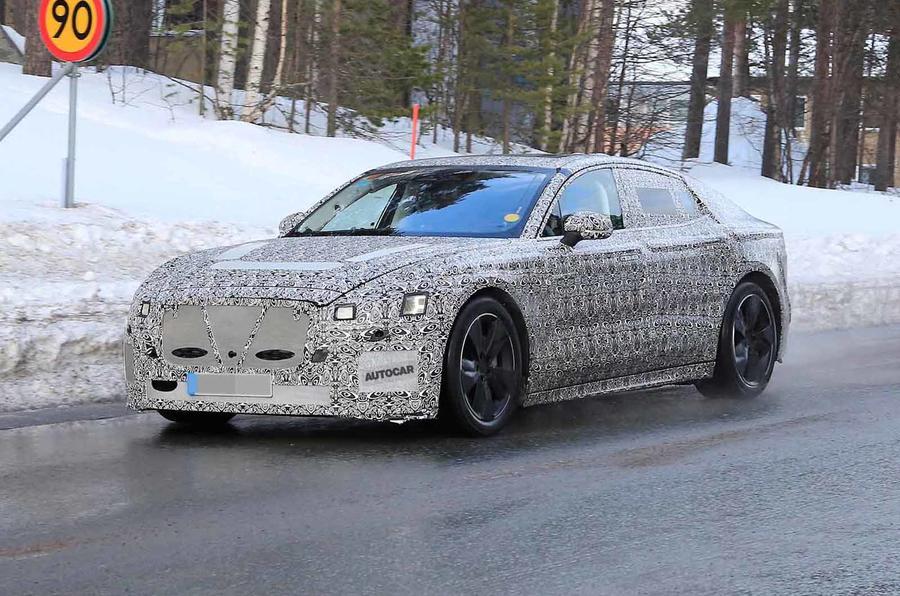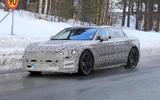The long-awaited electric replacement for the Jaguar XJ has been written out of the company's long-term strategy as it looks to transition to an electric-only luxury brand from 2025.
According to Jaguar Land Rover's bold new Reimagine plan to transform the company's fortunes, Jaguar will undergo "a renaissance to emerge as a pure-electric luxury brand with a dramatically beautiful new portfolio of emotionally engaging designs and pioneering next-generation technologies".
The electric XJ - first previewed nearly two years ago and spotted several times in advanced road testing – "will not form part of the line-up".
JLR said: "Following a thorough technology review against the exponential change in the automotive industry, we concluded that the planned XJ replacement does not fit with our vision for a reimaged Jaguar brand.
"We have made the tough decision that it will not form part of the line-up, as the brand looks to realise its unique potential."
The Reimagine strategy does suggest that the XJ name could be retained for use on one of Jaguar's new exclusively electric models. The brand will use its own bespoke EV architecture, separate from the two new platforms planned for its Land Rover sister brand, as part of a move to give the two brands disparate personalities.
The news of the XJ's cancellation comes with the confirmation that JLR is "not discontinuing current products and does not plan to stop production of any present models early". However, Thierry Bolloré has confirmed that the Castle Bromwich facility, where it would have been produced, will be repurposed after the models currently in production are phased out. It has yet to be revealed what the plant will be used for instead.
Jaguar's new EV platform will be built alongside Land Rover's MLA architecture at JLR's Solihull production facility.
It's unknown whether Jaguar will seek to launch a flagship electric luxury saloon to replace the scrapped XJ, but it did note: "We are talking about vehicles which will be available from 2025 onwards, when the industry won’t necessarily be defined by the same segments."
READ MORE












Join the debate
Add your comment
So, they're going to be an all-electric brand but pull the plug (no pun intended) on their next EV launch? And SUVs, like it or not, are what the market wants. They are also relatively easy to turn into EVs, especially fuel cell-powered EVs due to their size, but the writing is on the wall for Jag's SUVs as they're too similar to Land Rovers? This might not be the end, but I'm afraid you can see it from here.
I reckon when they did the design it was worked out that a car of this size would be better with the fuel cell/ hydrogen motive units being plannned for Land Rover. If so could be very interesting without the 600 kg of batteries it would otherwise be lumbered with.
Seriously...
Have your heard of the square cube law? (Look it up if not)
Batteries work better for larger vehicles as their ratio of surface area to mass is lower. Hence they can go further for a given % of their mass being batteries.
Regarding weight of an FCEV and a BEV the Toyota Mirai is heavier than a Model 3P with around 1/3 the power. Fuel cells have poor power to weight and therefore most systems have a buffer battery as well. Then add the fact that the UK has 20 million drives and 12 hydrogen filling stations, also hydrogen is about 3 times as energy intensive as electricity as an energy vector.
So no it is highly unlikely that Jaguar will use any fuel cells.
The issue for the XJ was probably that the new Model S has 500 miles of range and 1100bhp and you can order this now for delivery in summer.
We will of course see in time. But there is a definite trend towards looking at hydrogen for larger vehicles.